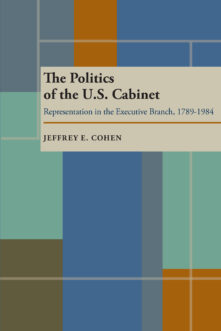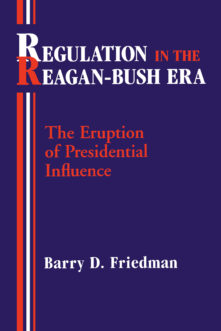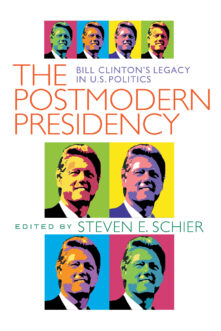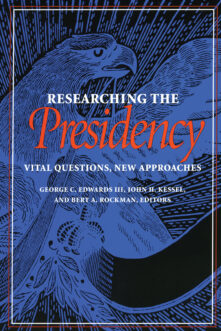Books

The Politics of the U.S. Cabinet
Representation in the Executive Branch, 1789-1984

Regulation in the Reagan-Bush Era
The Eruption of Presidential Influence

The Postmodern Presidency
Bill Clinton's Legacy in U.S. Politics

Researching the Presidency
Vital Questions, New Approaches
Total 4 results found.

